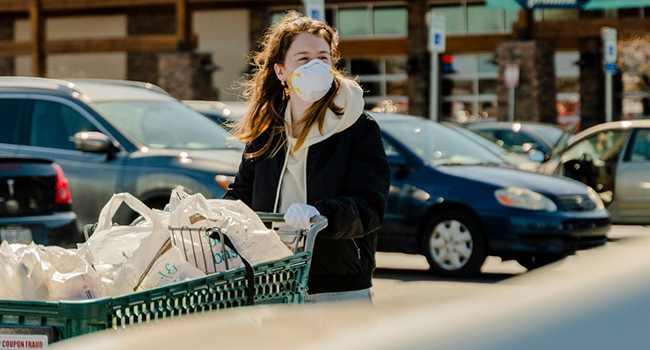 The schizophrenic aspects of Canadian culture and their influence on governments’ behaviour are increasingly evident.
The schizophrenic aspects of Canadian culture and their influence on governments’ behaviour are increasingly evident.
The most palpable example lies in how we trampled, in fear, over memory and institutions, obsessively protective and morally dismissive of dignity and human life simultaneously.
The COVID-19 lockdown has been a strange time for people who are struggling to reduce the risk that folks with health vulnerabilities would catch the virus and perish.
Police services enforced with gusto the makeshift regime, though they refused to enforce long-standing laws on road-blockading gangs weeks earlier. They chased families from parks and pathways, and turned people away from public roads. Those who questioned or objected were fined hundreds of dollars. Some were roughly handled and carted away, even when following every rule. The term covidiots was brought into vogue.
The social cost of the COVID-19 regime has not been computed and it may be a long time before we can know with some approximation the effect on marriages and friendships, the mental state of lone individuals, those with susceptible conditions such as depression, on sexual abuse and family violence, alcohol and substance abuse, and deaths from untreated non-COVID-19 issues and suicides.
Then there’s the economic cost of forcing hundreds of thousands of Canadians into unemployment and the corrupting effect of subsidy, with many now pushing for the lockdown to continue. As Félix Leclerc wrote in the 1950s, “the best way to kill a man is to pay him to do nothing.”
Policy has driven entrepreneurs to bankruptcy. It has made us poorer, yielding untallied amounts of debt from a government advancing its political agenda but shielded from parliamentary oversight.
All the while, hospitals went largely empty across the country and the most vulnerable were condemned to suffer in elderly human warehouses, producing so far over 80 per cent of all deaths in Canada.
Tentative reopenings and a few false starts added aggravations. The debate about the science of mask protection goes on, doing more laps around the track than middle-distance Olympic runners. Reopening too quickly, we were told, risks losing all the sacrifices previously made.
And then as the result of police brutality in the United States, the moral pretenses of the COVID-19 regime crashed. Upon one tragic death, life-saving medical measures no longer mattered so that emotive, virtue-signalling mobs could be supplied.
Politicians quickly knelt in front of the parade, ignoring laws they had just installed. No one enforced what days earlier was imposed with bully-like resolve.
The personal, social and economic sacrifices of so many, including the elderly we didn’t properly protect, may have been erased by a media-whipped crowd (to say nothing of looters).
The protesters exposed the whimsical nature, even if well-intended, of the COVID-19 regime and its overblown moral panic. As a byproduct, the prime minister who hides in his cottage and fears Parliament’s oversight now fearlessly struts among the protesters.
In the face of these gatherings, what do we say to the families denied the dignity of properly burying their dead?
We ordered soldiers to enter virus-infested centres in Quebec and Ontario, putting their lives at risk. Yet two fallen Nova Scotia daughters in uniform went without honours. One of them gave her life to protect Nova Scotians, trying to stop a madman on a killing spree.
What do you say to their families (and to the families of the massacre victims who could not be properly grieved and buried) when Halifax boasts its anti-police demonstration to have been one of the largest in the province’s history?
Whether the length and intensity of the lockdown is justified, the reaction to one life unjustly lost in another country has trumped the COVID-19 moral panic to save thousands, exposing a callous indifference to life outside the unprincipled guiding of the media’s lens.
Popular emotions swept governments, eclipsing the rule of law and the institutions designed to protect us against emotive mob action.
Marco Navarro-Génie is senior fellow with the Frontier Centre for Public Policy and president of the Haultain Research Institute.
Marco is a Troy Media Thought Leader. Why aren’t you?
The views, opinions and positions expressed by columnists and contributors are the author’s alone. They do not inherently or expressly reflect the views, opinions and/or positions of our publication.


